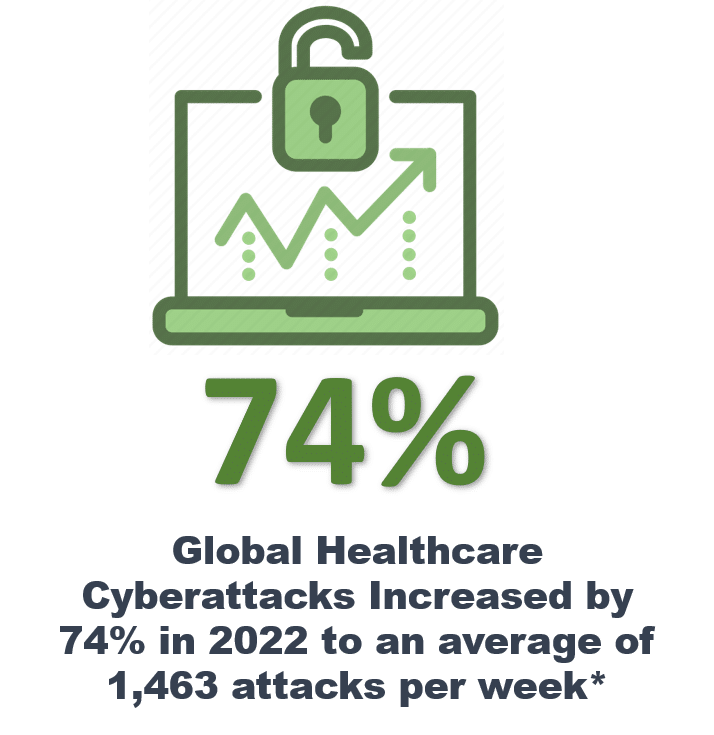
HIPAA-compliant file sharing means adopting a robust security framework like Zero Trust Data Access (ZTDA) for guarding Protected Health Information (PHI) and complying with regulations.
HIPAA-Compliant File Sharing with Zero Trust: How to Secure PHI
Estimated reading time: 3 minutes
Table of Contents
-
- Empowering Healthcare Security with HIPAA Compliant File Sharing
- Enhances Zero Trust-Based Privacy and HIPAA Compliant File Sharing
- Get HIPAA Compliant Collaboration Across Healthcare Providers
- Streamlined Access to Large DICOM Files
- Maintains IT Control and Governance
- Mitigates Ransomware Risks and Protecting Personal Health Information (PHI)
- Unique Advantages of Zero Trust Data Access for Healthcare Organizations
- Conclusion: Empowering Healthcare Security Using Zero Trust Data Access (ZTDA)
Empowering Healthcare Security with HIPAA-Compliant File Sharing


What Is HIPAA-Compliant File Sharing?
HIPAA-compliant file sharing is the secure exchange of protected health information (PHI) in accordance with the U.S. Health Insurance Portability and Accountability Act. It requires safeguards like data encryption, access controls, user authentication, and audit logging to prevent unauthorized access and ensure privacy in healthcare communications.
HIPAA-Compliant File Sharing Using Zero Trust Data Access
Maintaining patient privacy and complying with regulations is paramount in the healthcare industry. Zero Trust Data Access provides a secure environment for accessing and HIPAA-compliant sharing of files and folders that contain PHI. ZTDA ensures that access to these files is granted only to authorized users, following the principle of least privilege. This micro-segmented approach allows healthcare organizations to set granular access controls at the file and folder levels, ensuring that sensitive information is only accessible by those with a legitimate need. ZTDA also provides a comprehensive activity log, enabling organizations to track and monitor every action taken on files and folders, aiding compliance with HIPAA and other privacy regulations.
Get HIPAA Compliant Collaboration Across Healthcare Providers
Effective patient care often involves collaboration among various healthcare providers, each with separate systems and repositories. Zero Trust Data Access enables secure sharing and HIPAA-compliant collaboration of files and folders containing PHI across these disparate systems. Healthcare stakeholders can access permitted files containing healthcare information as if they were working on a local drive in Windows, regardless of the complexities related to different technologies and storage locations. By leveraging ZTDA, healthcare organizations can streamline communication, improve care coordination, and enhance efficiency while maintaining data security.
Streamlined Access to Large DICOM Files
Zero Trust Data Access as implemented by FileFlex Enterprise is ideal for healthcare organizations managing large DICOM images because it enables secure, direct access. sharing and collaboration of DICOM images from the original storage location and eliminates the need to download large DICOM files repeatedly, reducing network strain and storage duplication. The platform ensures encrypted, role-based access with view-only options, allowing organizations to maintain strict control over sharing sensitive patient data. It supports compliance with regulations like HIPAA and GDPR, provides audit trails, and facilitates seamless collaboration across distributed teams. This approach improves efficiency, minimizes ransomware risks, and ensures sensitive data remains secure in its original environment.
Maintains IT Control and Governance:
Managing personal health information contained in sensitive files across diverse repositories and third-party entities can be challenging for IT teams. Zero Trust Data Access offers robust management tools that provide centralized control over access and HIPAA-compliant file sharing of unstructured data, including PHI. Organizations can define policies, assign access rights, and manage data access on a user-by-user or group-by-group basis. Zero Trust Data Access enables IT teams to have complete insight into every action performed on files and folders, allowing them to identify and flag any suspicious behavior promptly, especially when used in conjunction with SIEM software. This level of control empowers healthcare organizations to mitigate insider threats and proactively protect patient data.
Mitigating Ransomware Risks and Guarding Protected Health Information (PHI):
Ransomware attacks pose a significant threat to healthcare organizations, potentially compromising patient data and disrupting critical services. Zero Trust Data Access can play a crucial role in mitigating these risks. By enforcing strict access controls and restrictions on lateral movement, ZTDA limits the attack surface for ransomware. Additionally, ZTDA offers advanced activity monitoring capabilities, enabling organizations to detect suspicious or unauthorized file modifications and even detect a ransomware attack during data exfiltration of files containing protected health information. By implementing ZTDA, healthcare organizations can significantly reduce the risk of ransomware attacks, aiding in the guarding of protected health information (PHI).
Unique Advantages of Zero Trust Data Access for Healthcare Organizations
Zero Trust Data Access as implemented by FileFlex stands out from other technologies due to its comprehensive approach to data access, storage architecture, Windows integration, data governance, and HIPAA regulatory compliance. Unlike other solutions that require file duplication or syncing to a centralized server, it operates on a decentralized architecture. This approach enables secure access to files stored across various locations, eliminating the need for data duplication and reducing costs. It seamlessly integrates with Windows File Explorer, providing full functionality for all storage accessed anywhere and allowing sharing and collaboration from any repository within Windows.

Conclusion: Empowering Healthcare Security Using Zero Trust Data Access (ZTDA)
Zero Trust Data Access (ZTDA), exemplified by FileFlex Enterprise, offers healthcare organizations a robust solution for protecting access and HIPAA-compliant sharing of files containing protected health information. By implementing ZTDA, healthcare organizations can enhance data security, ensure privacy and compliance, facilitate secure collaboration among providers, and gain IT control over access to PHI. With its unique features and advantages, ZTDA platforms like FileFlex empower healthcare organizations to navigate the complexities of data security in the digital age and safeguard access and sharing of files containing protected health information (PHI) effectively.
For more information, see HIPAA Compliant File Sharing, Protecting Access and Sharing of Personal Health Information with ZTDA for Windows, Critical Infrastructure Management Over Remote Access and Sharing Using Zero Trust Architecture, and What is Zero Trust Data Access (ZTDA)?
Learn More About FileFlex Sign Up for a Free TrialFrequently Asked Questions
What is HIPAA-compliant file sharing?
HIPAA-compliant file sharing is the secure exchange of protected health information (PHI) in accordance with the Health Insurance Portability and Accountability Act. It requires safeguards such as encryption, access controls, user authentication, and audit trails to ensure privacy and prevent unauthorized access to sensitive healthcare data.
What are the key requirements for HIPAA-compliant file sharing?
To aid HIPAA-compliance file sharing must include data encryption in transit and at rest, robust user authentication, role-based access controls, audit logs, and Business Associate Agreements (BAAs) with service providers. These measures help protect PHI from breaches and ensure regulatory compliance.
Can cloud-based file sharing be HIPAA-compliant?
Yes, cloud-based file sharing can aid HIPAA-compliance if the provider implements the required security safeguards, including encryption, access controls, logging, and a signed Business Associate Agreement. The platform must ensure that PHI is protected at all times and only accessible by authorized users.
Is FileFlex a HIPAA-compliant file sharing solution?
Yes, FileFlex supports HIPAA compliance by enabling secure file access and sharing through a Zero Trust Data Access architecture. It protects PHI with encryption, granular access controls, continuous authentication, and a system that keeps data in place—helping healthcare organizations meet HIPAA’s security and privacy requirements.